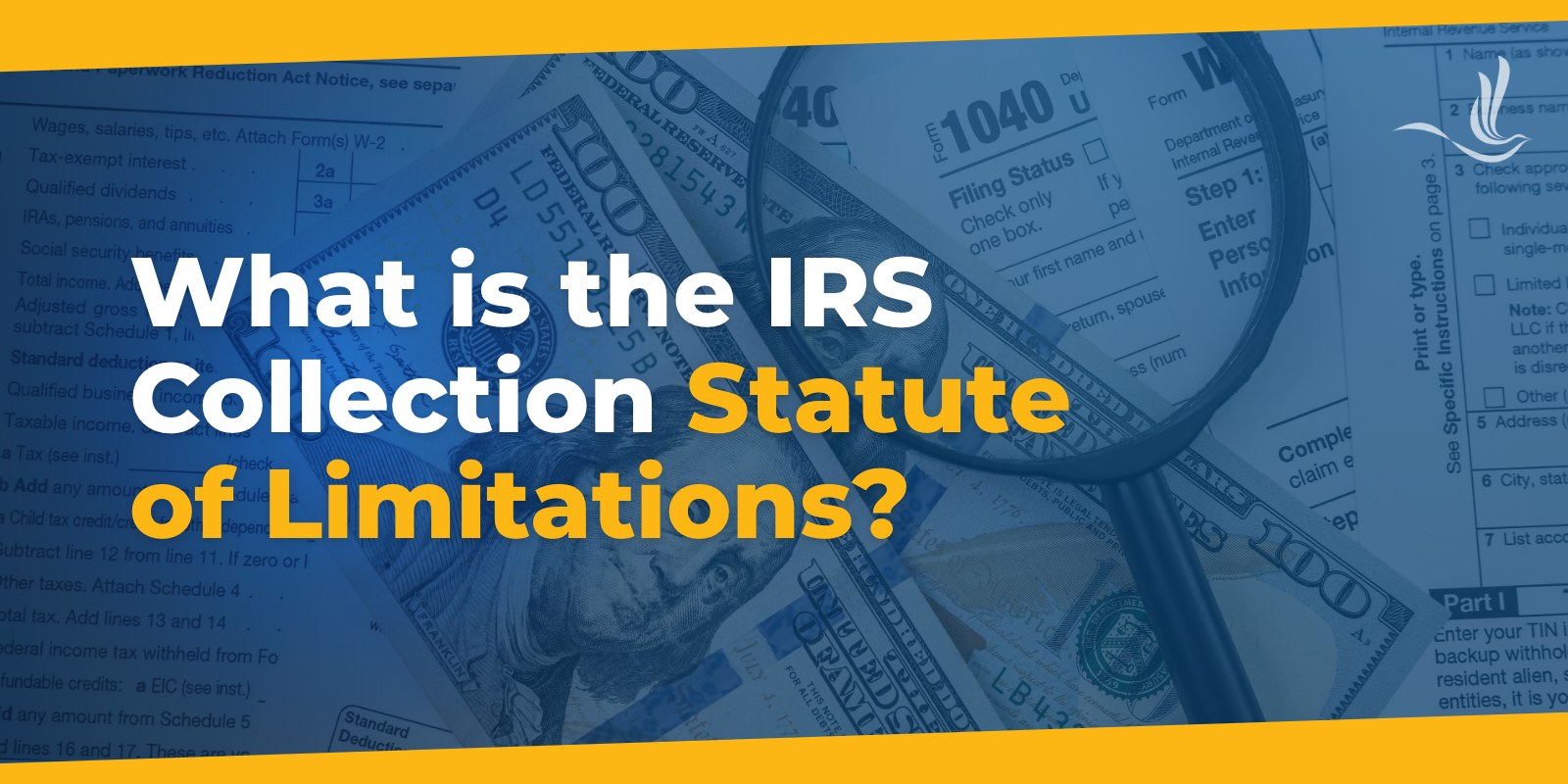They say that death and taxes are the only two certainties in life. However, taxes are only collectible for so long. The IRS Collection Statute of Limitations is a critical aspect of tax law that often confuses taxpayers and professionals alike. This statute dictates the timeframe within which the IRS can collect unpaid taxes. While it offers protection to taxpayers, navigating its complexities requires a nuanced understanding. Let’s delve into what the IRS Collection Statute of Limitations entails and its implications for taxpayers.
What is the IRS Collection Statute of Limitations?
The IRS Collection Statute of Limitations is outlined in Section 6502 of the Internal Revenue Code. It establishes the timeframe during which the IRS can pursue the collection of unpaid taxes. Generally, the statute allows the IRS ten years from the date of assessment to collect the owed taxes.
How Long is the IRS Collection Statute of Limitations?
The IRS has a 10-year statute of limitations for tax collections, beginning when the IRS first assesses your tax liabilities. In other words, the IRS cannot collect tax debt that is older than 10 years. You should keep in mind that the first IRS notice you receive is not necessarily when your liabilities are assessed. Specifically, there is a Collection Statute Expiration Date (CSED), which marks the last day the IRS can collect tax debt. After the CSED, the IRS cannot legally collect your tax debt, which means that your tax debt essentially disappears.
If you want to find your CSED, you can count 10 years from the date on your Notice of Federal Tax Lien. You can also request a transcript of your IRS account to find the date your liability was assessed and filed. However, keep in mind that there are several actions that can delay the statute of limitations, thus pushing out your CSED.
Which Actions Extend a CSED?
There are several qualifying events that can extend a CSED, including the following.
Filing for Bankruptcy
When an individual files for bankruptcy, the Collection Statute of Limitations is typically tolled, meaning it is paused or suspended for the duration of the bankruptcy proceedings. The IRS will pause the statute of limitations while your bankruptcy filing is pending, starting from the filing date until the court decides. The CSED will remain suspended for an additional six months.
Living Abroad
Living abroad can also have implications for the Collection Statute Expiration Date. The IRS will pause the statute of limitations while you live abroad for six consecutive months or longer. The CSED could remain suspended for six months after you return to the United States.
Requesting an IRS Installment Agreement
The IRS will pause the statute of limitations while it reviews your installment agreement application. If the agreement is rejected, the CSED will remain suspended for 30 more days. This is also the case if your installment agreement defaults. If you appeal your rejection, the CSED will remain suspended until a decision is final.
Submitting an Offer in Compromise
When you submit an Offer in Compromise (OIC) to the IRS, the CSED is typically tolled or suspended for the duration of the consideration period, which can last several months or even longer. Once a decision is made, the suspension ends. If your offer is rejected, your CSED will remain suspended for 30 more days.
Requesting Innocent Spouse Relief
When a taxpayer requests Innocent Spouse Relief, the CSED is typically tolled or suspended for the duration of the IRS’s consideration of the innocent spouse claim. However, the suspension will only apply to the spouse applying for relief. The IRS will extend the CSED until you either receive a waiver or the 90-day petition expires, whichever happens first. If you appeal the tax court decision, the statute of limitations will be suspended until a final decision is made. In any of the above case, the IRS will also extend the CSED an additional 60 days.
Requesting a Collection Due Process (CDP) Hearing
When a taxpayer requests a CDP hearing, the IRS generally suspends the CSED. The IRS will pause the statute of limitations while it reviews your request to stop a levy or remove a lien until a determination is made or until you withdraw your request. Additionally, if there are less than 90 days left in collections when a final decision is made, the IRS will extend the CSED 90 more days.
Military Deferment
A military deferment can also have implications for the Collection Statute Expiration Date. The IRS will pause the statute of limitations during military service and for an additional 270 days afterward. If you serve in a combat zone the CSED will be suspended for up to 180 days after military service.
Being Sued By the IRS
While this event rarely happens, the IRS will pause the statute of limitations during the court proceedings.
Can I Ignore My Tax Debt Until the IRS Collection Statute Expires?
You might be enticed to just wait out the IRS collection statute of limitations. However, this strategy is generally not recommended since it would mean ignoring your growing tax bill and IRS notices. Under these circumstances, simple actions like getting a job, purchasing a home, registering a vehicle, and operating a business would be very difficult. Working with the IRS will typically be your best option, but doing so alone can be tedious, intimidating, and stressful. Working with a credible and experienced tax relief company can help save time, money, and stress. Optima Tax Relief has over a decade of experience helping taxpayers get back on track with their tax debt.
If You Need Tax Help, Contact Us Today for a Free Consultation
Publisher: Source link











